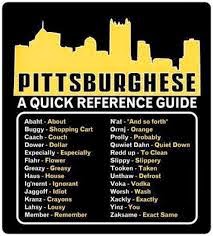This was the third in a triptych of documents. The 1994 piece, Tertio Millennio Adveniente, announced a three year period of reflection on the Trinity (1997, God the Father; 1998, God the Son; 1999, God the Holy Spirit) as preparation for the coming Great Jubilee Year. The papal bull of announcement for the Great Jubilee was Incarnationis Mysterium in 1998. The third document has the aging pope reflect on many of the events of that year, almost wistfully looking back as what he set in motion. But he also looks forward, to the beginning of the third Christian millennium.
In Novo Millennio Ineunte the pope advocated "pastoral planning." He wrote that the Gospel "must be translated into pastoral initiatives adapted to the circumstances of each community." He saw that different dioceses will emphasize different parts of the Gospel. "With its universal and indispensable provisions, the program of the Gospel must continue to take root in the life of the Church everywhere. It is in the local churches that the specific features of a detailed pastoral plan can be identified....I therefore earnestly exhort the Pastors of the particular churches confidently to plan the stages of the journey ahead."
For years Bishop David Zubik has been quietly laying the groundwork for such a pastoral plan for the Diocese of Pittsburgh for the next generation. He set out his vision in his opening sermon as the 12th ordinary, the catch-phrase "a Church alive." He amplified this in his pastoral letters: "The Church Alive!"; "The Church Evangelizing!"; The Church Living!"; "The Church Sharing!" He initiated Our Campaign for the Church Alive! to raise millions of dollars for our parishes and diocesan initiatives, but much more importantly, to raise up Catholics committed to a more vibrant church.
About two years ago the bishop formed a committee called "Tilling the Soil" to work for over a year to identify the gifts and challenges of being Catholic in the six counties of southwest Pennsylvania. Now he has sponsored the Commission for Planning for Parishes. Priests, laity and diocesan staff have begun to look ahead, asking probing questions:
- How can our parishes become more active and alive?
- How can pastors lead and engage laity in the working of spreading the Gospel?
- How can parishes work more closely together?
- How can the diocesan central administration serve the priests, lay ecclesial ministers and parishes better?
- Where should parishes merge to strengthen their communities?
- Should any church buildings close?
- How can Catholics encourage more vocations to the priesthood, married life, committed single life, and religious life?
And maybe the most important question, Where do we discern the Holy Spirit is leading us?
The Commission for Planning is looking at five distinct pastoral ares in this process. These are evangelization and pastoral engagement; communications; leadership development; vicariate planning; and finances. At this stage of the process, the Commission has more questions than answers. But the questions are good ones. And they involve many complex steps: identifying our needs, opportunities, demands and resources; clarifying our vision, values and norms; outlining processes, structures and policies; and implementing those behaviors which will bring about a more vital and engaged church.
Sound complicated? It is. Sound challenging? You bet! Is it necessary? Without a doubt. People in all walks of life (retail businesses, manufacturing, government, the military, schools and universities, social services) know that if you stand still, you get run over. Or worse, you get ignored. "We've always done it this way" is a paralyzing phrase which prevents growth. "How can we do this better?" is the hope-filled mantra which leads to healthy organizational change and promotes growth.
I have been privileged to be appointed, first, to the "Tilling the Soil" committee, and now to the Commission for Planning for Parishes. Like most of the people on these bodies, I have learned the hard way that change in the Catholic Church is difficult. (Ask some of the "old dogs" like me on the commission who went through the diocesan reorganization of 1989-1995 about the emotional scars we still hold.) But with a willing spirit and an open mind, pastoral planning can focus our energies to carry out Christ's foundational command, "Go make disciples in all the nations." (Matthew 28:19)
You will see much more about this process over the next two years, from Bishop Zubik and diocesan staff in the Pittsburgh Catholic, from me in our parish bulletin and (maybe) on this blog. The goal is to use the best of change/transition processes to make more energetic and larger Catholic Christian communities, here in New Castle and throughout the Diocese of Pittsburgh.





















